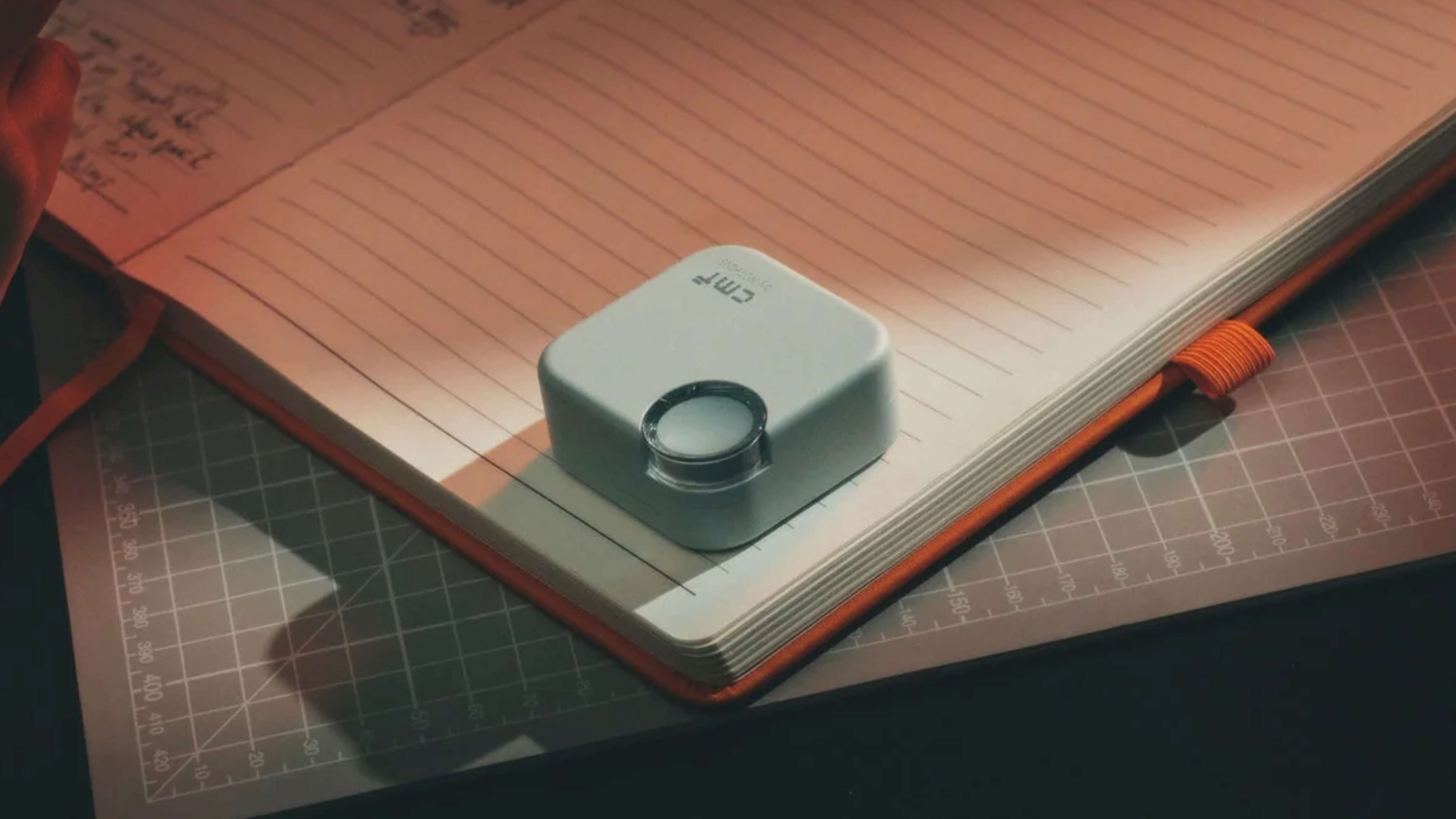Android Central Verdict
If you've used NAS servers with traditional hard drives in the past but want to switch to M.2 storage, the F8 SSD Plus should be at the top of your list. The NAS server has a significantly smaller profile than regular NAS servers, but you still get eight M.2 slots. The Intel i3-N305 platform delivers outstanding performance, and you get 16GB of RAM as standard. There's 10GbE connectivity, an HDMI port, and USB 3.2 Gen 2 ports that allow you to add additional drives down the line. The software still has a few quirks, but if you want to set up an enthusiast NAS server exclusively with M.2 storage, the F8 SSD Plus is the best overall choice right now.
Pros
- +
Powerful hardware with 16GB memory
- +
Compact design
- +
10GbE connectivity
- +
Eight M.2 2280 slots and added extensibility
- +
Outstanding performance
- +
Software is better than before
Cons
- -
TOS 6 software is buggy at times
- -
Plastic chassis
- -
No Thunderbolt 4 connectivity
Why you can trust Android Central
TerraMaster continues to have a major presence in the NAS category, and while its servers offer decent hardware and a good value, they don't have anywhere close to the same sales volume as larger brands. The Taiwanese brand is now looking to change that with its 2024 selection; products like the F4-424 Max and F6-424 Max have much better designs, significantly upgraded hardware, and 10GbE connectivity as standard.
But it's the F8 SSD Plus that stood out the most. Unlike the other products, the F8 SSD Plus is an all-flash NAS; it doesn't have 3.5-inch drive bays, instead offering just M.2 slots. The NVMe segment is at a point where you can get high-density SSDs for not a lot of cash — the 2TB WD SN770 is available for $118 — and that makes M.2 SSDs a viable alternative in NAS servers.
I put this to the test with UGREEN's DXP480T Plus earlier in the year, and while that particular model didn't have much in the way of software, the hardware was seriously impressive. Switching to an all-flash NAS comes with considerable advantages; you get significantly faster transfers, and much better long-term reliability as M.2 drives don't have any moving parts.
Pricing has always been the biggest barrier in this segment, and TerraMaster is addressing that with the F8 SSD Plus. The all-flash NAS server is available for $799, and while that costs more then the brand's traditional NAS offerings, it comes with much better hardware. I used the F8 SSD Plus for a week, and I think this is the best overall option currently available if you're ready to switch to an all-flash NAS.
TerraMaster F8 SSD Plus: Pricing and availability
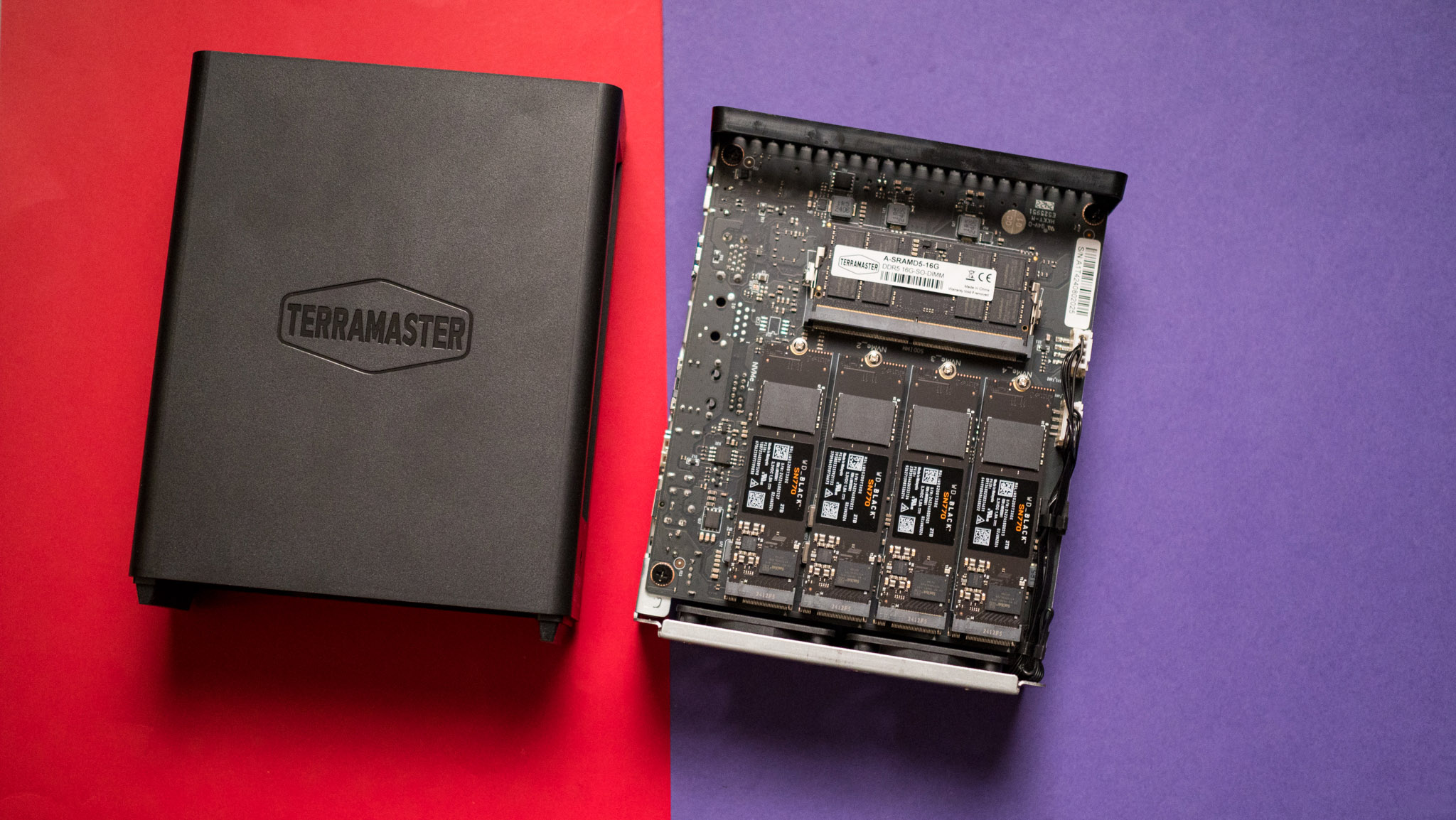
TerraMaster introduced the F8 SSD Plus on September 19, and the NAS server is now available globally. The 8-bay NAS server retails for $799 on Amazon, but TerraMaster is incentivizing the launch with a $100 discount, bringing the cost down to $699.
There's also a standard model of the F8 SSD that has the same design, same eight M.2 slots, and 10GbE connectivity, but it is powered by the Intel N95, and comes with 8GB of pre-installed memory. This model costs $599 on Amazon, and again, you get a $100 discount, bringing it down to $499.
TerraMaster F8 SSD Plus: Design
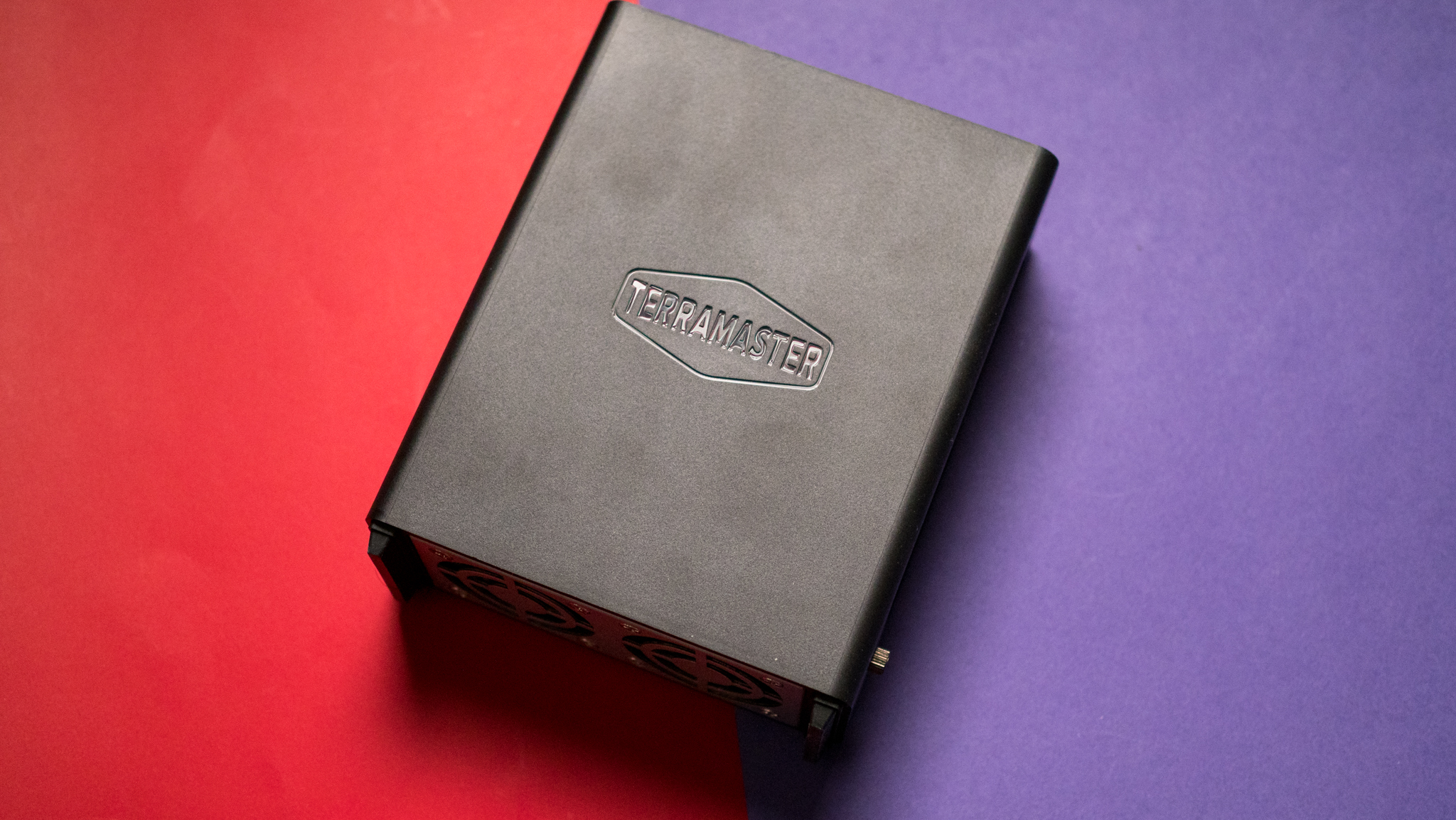
The F8 SSD Plus doesn't look like like the F4-423 or any other TerraMaster NAS, and that's understandable considering it doesn't have any 3.5-inch drive bays. What immediately stands out about the design is the size; the F8 SSD Plus is roughly the size of a traditional single-bay NAS server, but it accommodates eight M.2 SSD drives, and that's a sizeable achievement in and of itself.
The NAS doesn't take up much room at all, and the generic design means it easily blends into the background — it doesn't have the same presence as UGREEN's NAS servers. That's not a bad thing necessarily as most users will slot the NAS into a cabinet anyway.
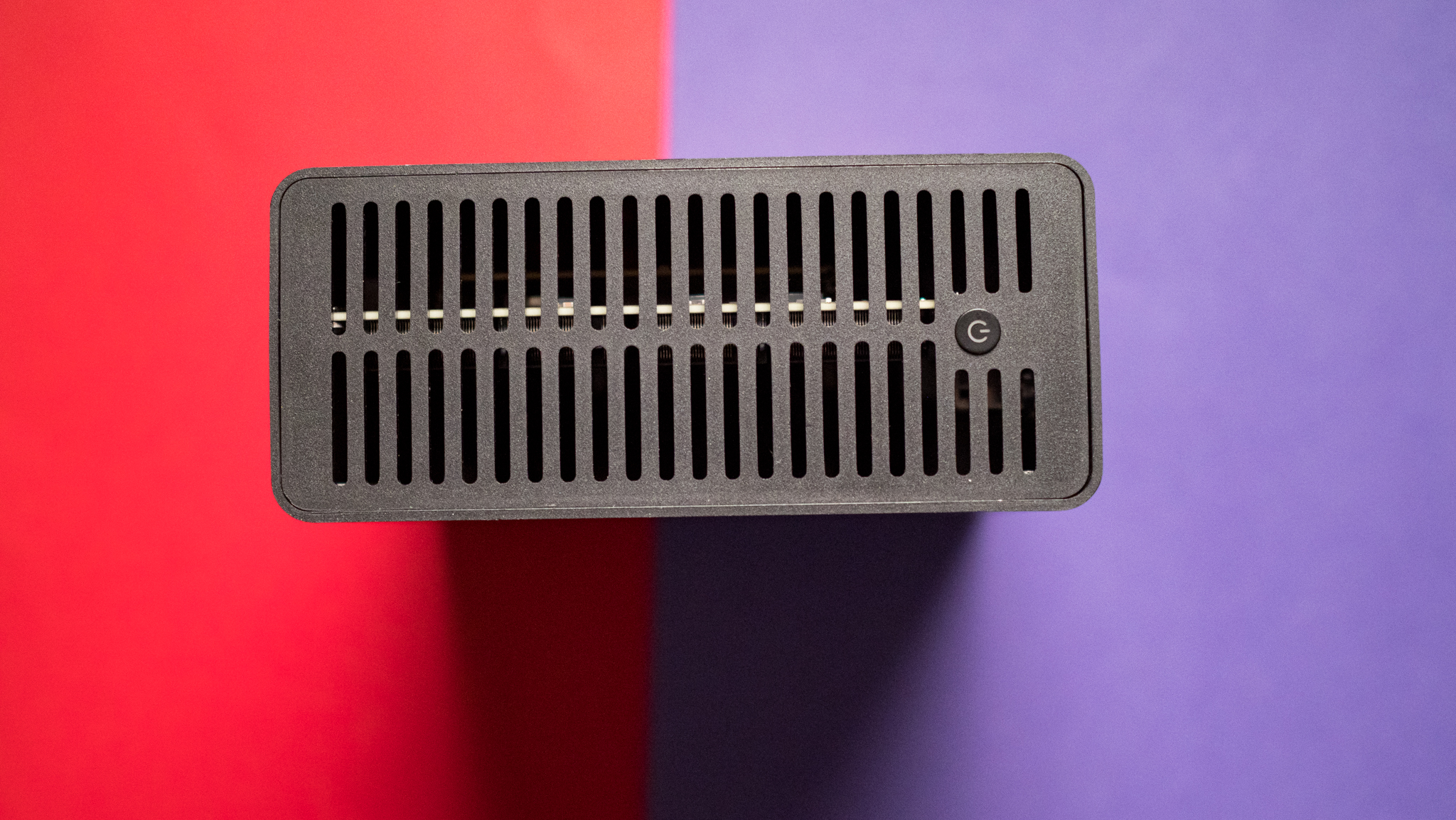
You get the TerraMaster logo on the sides of the NAS, and the top has a vented design that acts as the exhaust; there are dual fans located at the bottom that provide active cooling to the innards. The rubber feet at the bottom ensure the NAS stays upright, and the build quality is decent enough. There's a power button at the top that lets you power on the NAS, and besides that, you don't get any buttons.
What I like the most about the design is the tool-less installation of the M.2 drives; the entire enclosure slides up and is held in place by a single thumb screw, and you can easily add M.2 drives as needed. TerraMaster did a great job with the accessories as well, and you get eight heatsinks, thermal pads, and elastic bands to attach to M.2 drives.
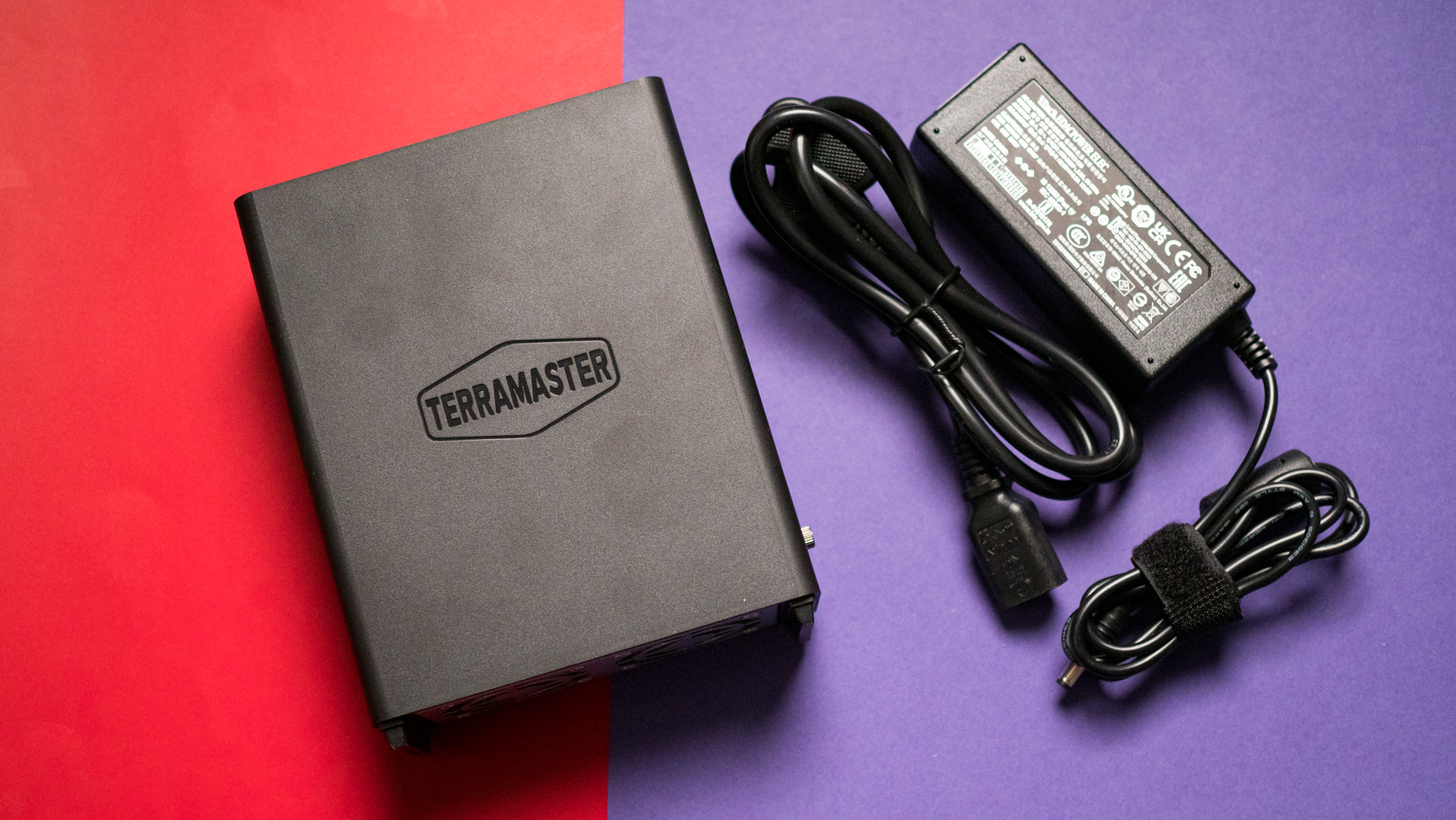
Because of the diminutive size of the chassis, you can't really use SSDs with bundled heatsinks — I tried — so the inclusion of heatsinks with the package is a welcome touch. The only issue I have with the design is that the F8 SSD Plus has a plastic chassis; an aluminum design would have been preferable in this situation, and considering TerraMaster goes this route with most of its mid-range NAS servers anyway, I don't quite understand why it didn't do so with this NAS.
Other than that, there are no issues with the product in this regard. The small chassis combined with eight drive slots gives the NAS a notable advantage over its rivals, and TerraMaster deserves credit for the overall design.
TerraMaster F8 SSD Plus: Ports and connectivity
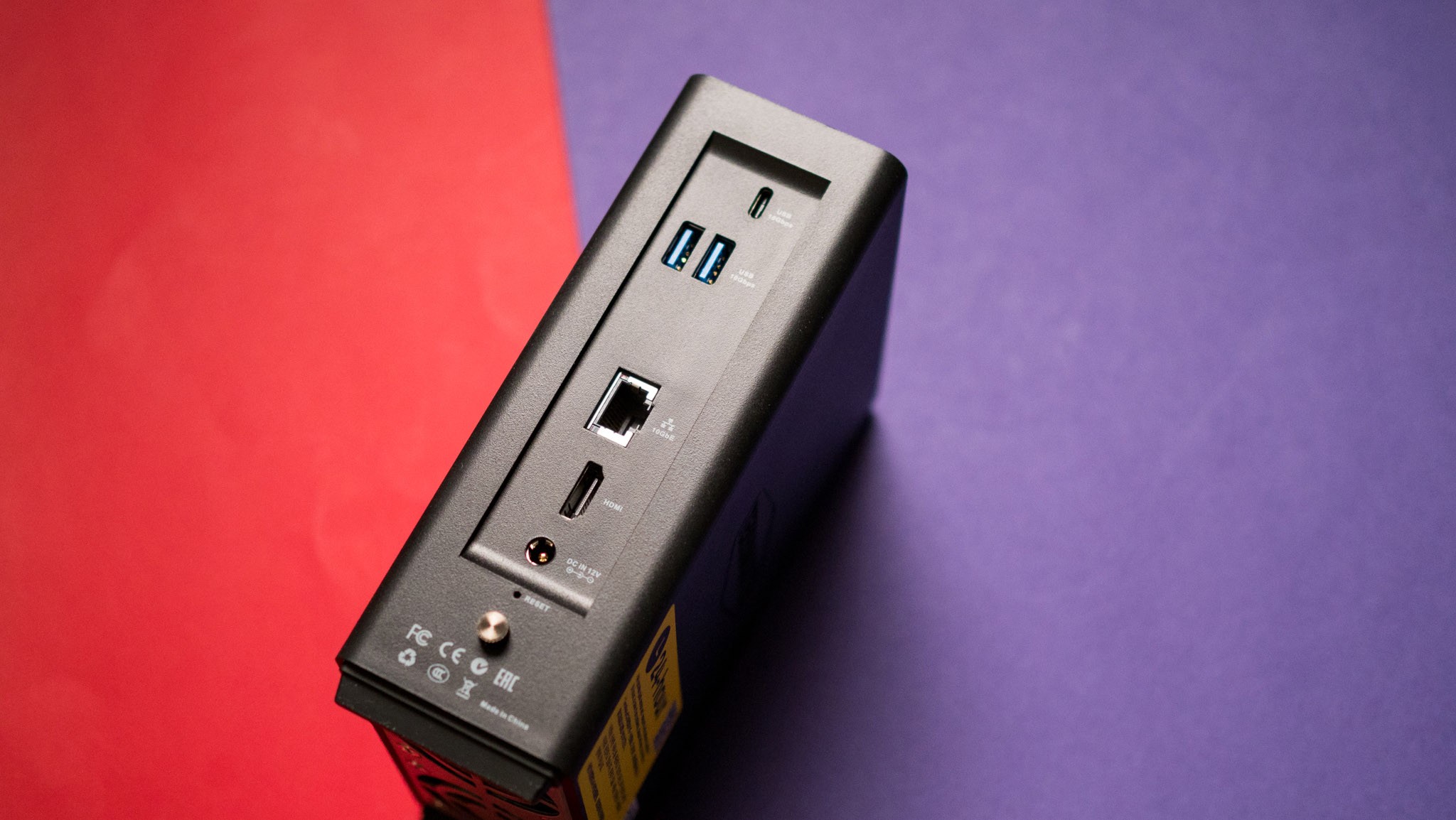
TerraMaster is known for delivering great hardware, and that's true of the F8 SSD Plus as well. The NAS has 10 Gigabit Ethernet connectivity as standard, and you get an HDMI port. While I would have liked dual 10GbE ports — that would have made the NAS much more enticing — I understand why the brand decided to offer just one on the NAS.
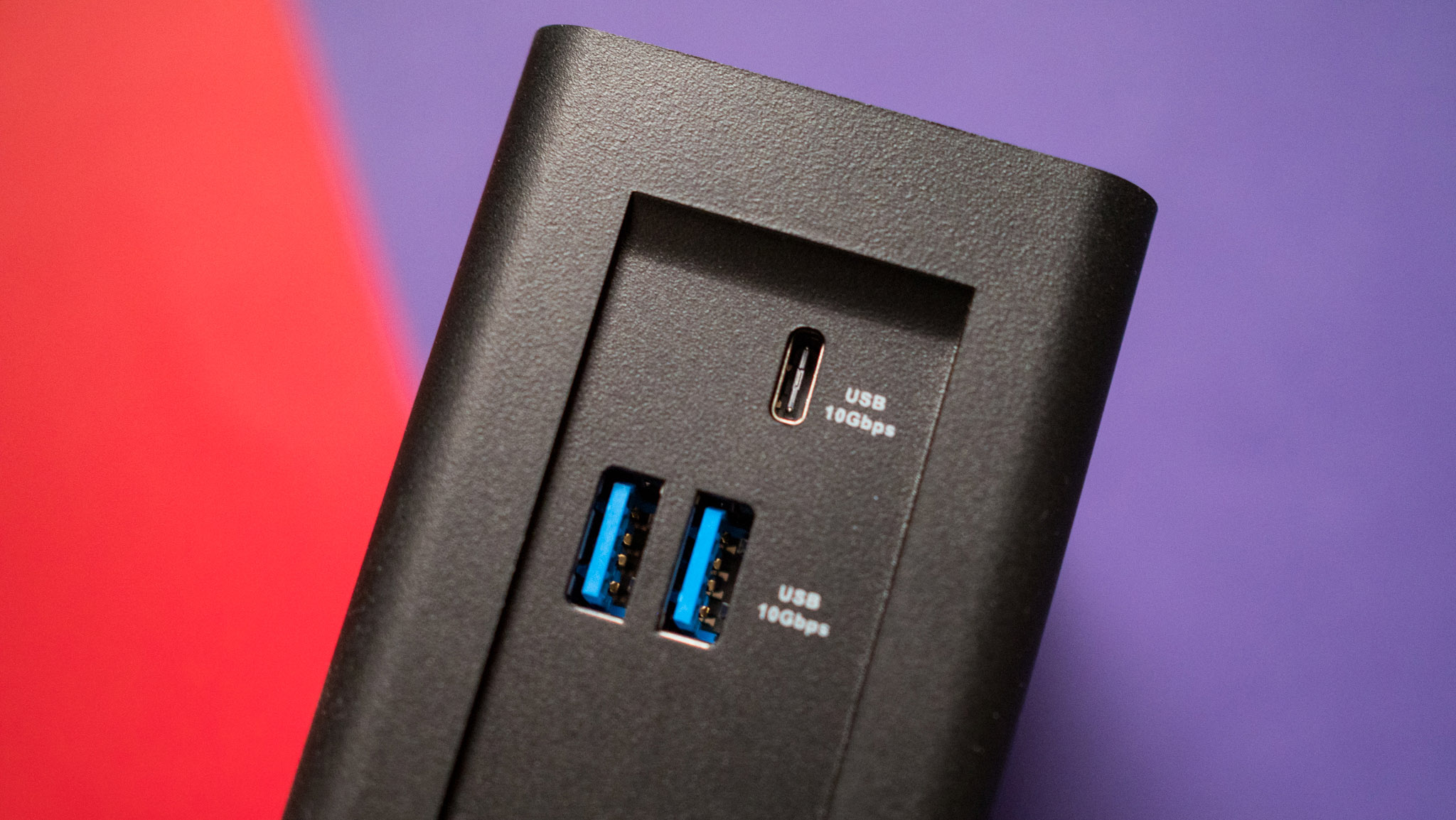
There are two USB-A ports and a single USB-C port, and all three are based on the USB 3.2 Gen 2 standard and offer 10Gbps bandwidth. I would have liked Thunderbolt 4 connectivity; the NAS is aimed at content creators, and the inclusion of Thunderbolt 4 would unlock a suite of new use cases.
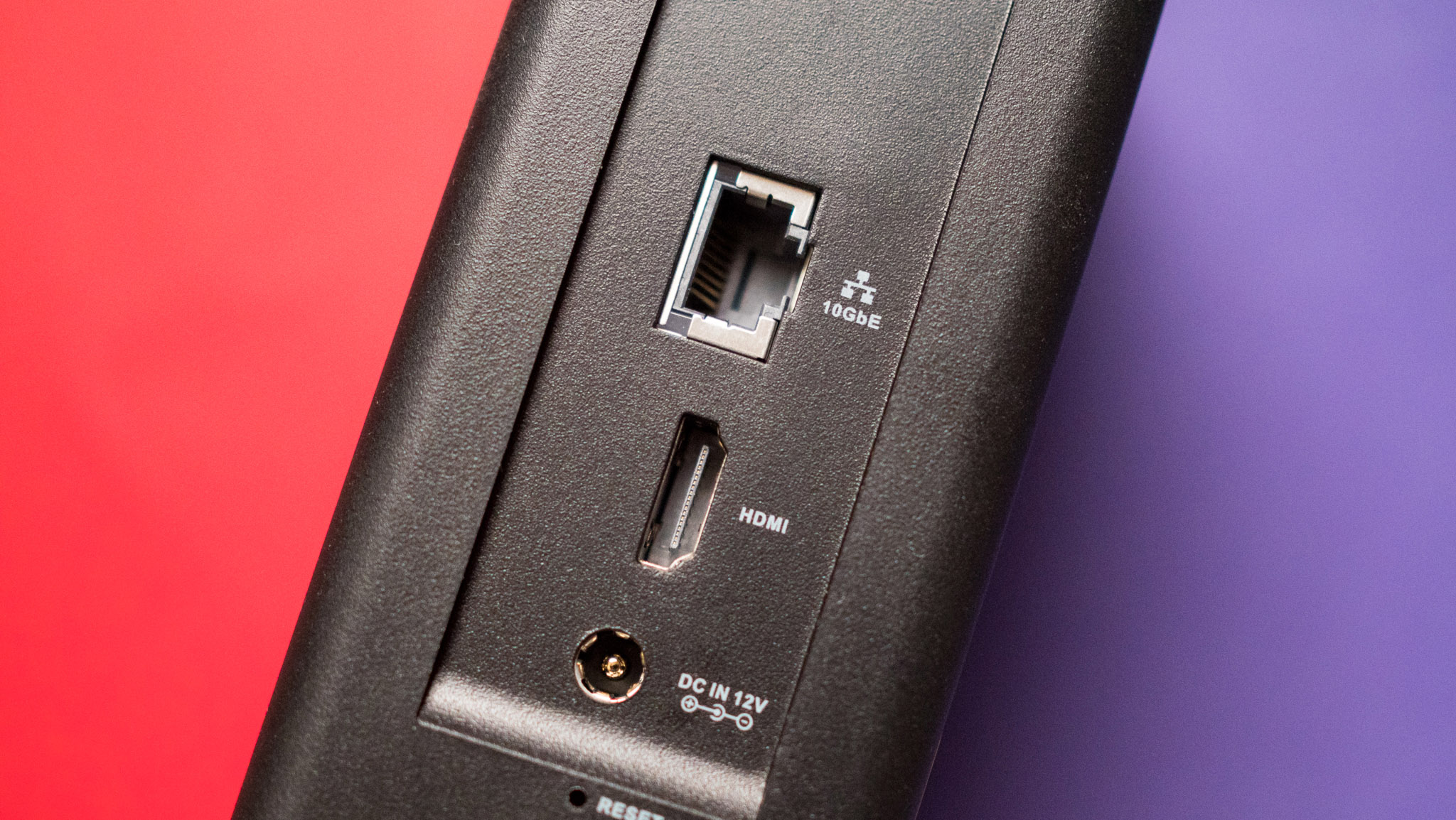
Switching to the innards, the F8 SSD Plus comes with 16GB of DDR5 RAM out of the box, and it is slotted into one of the dual SO-DIMM slots available on the motherboard. You can add another 16GB module if you need to increase system memory, and it's relatively easy to do so.
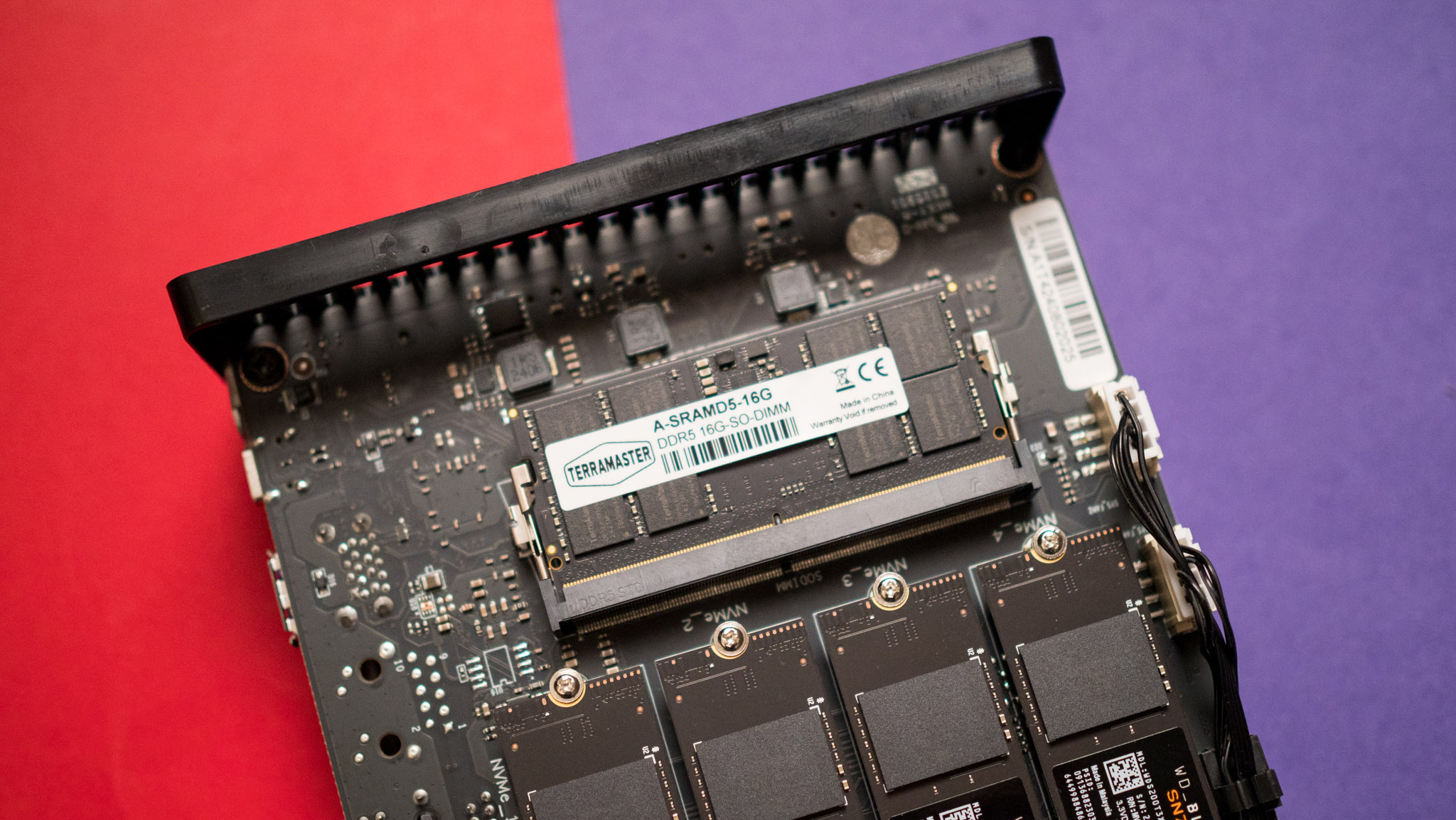
Coming to the M.2 connectors, you get four M.2 2280 slots on either side of the motherboard, with each slot able to accommodate up to an 8TB drive, giving you a total of 64TB of addressable storage. The fans at the bottom are positioned in such a way that they do an effective job cooling the drives.
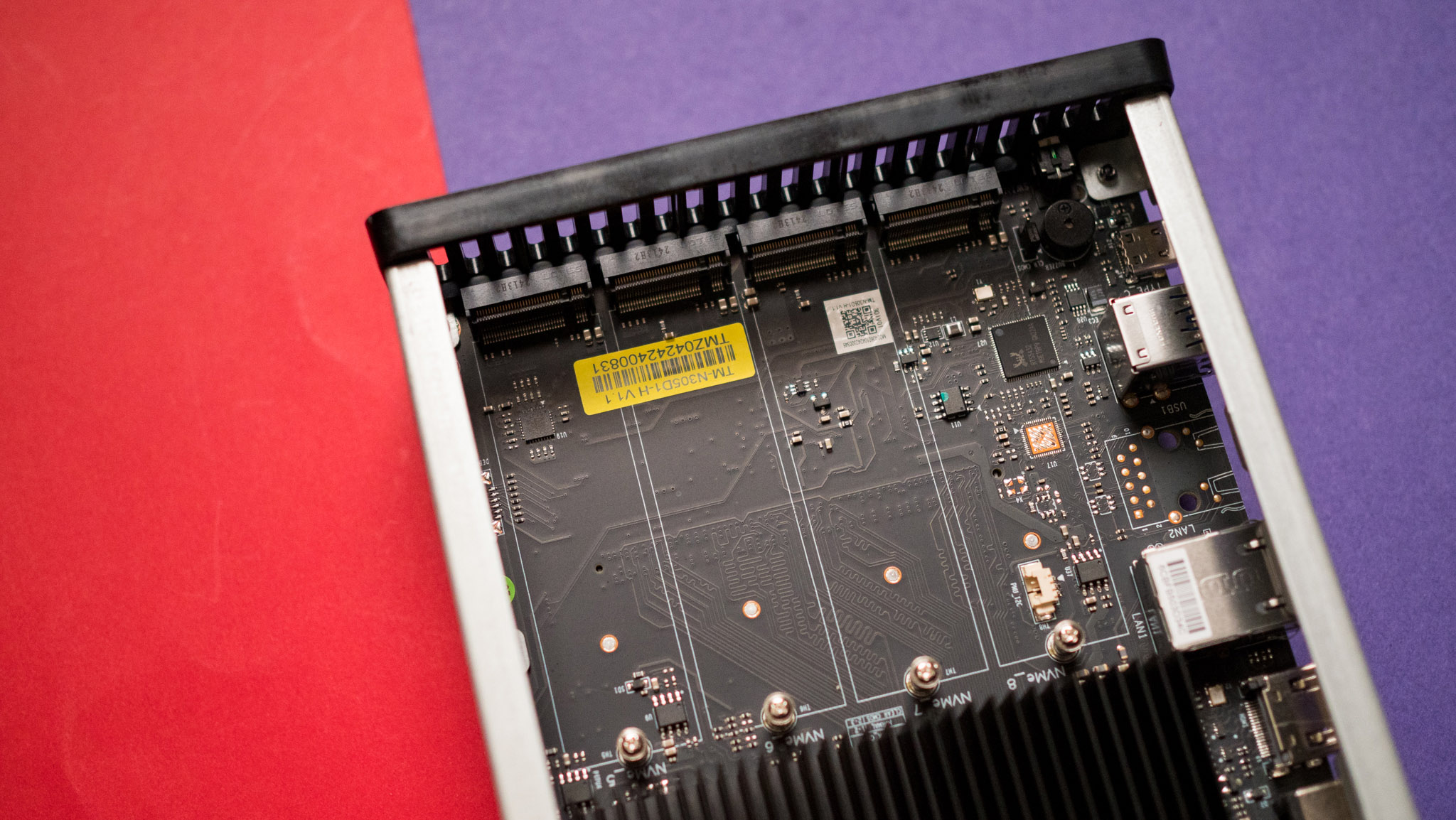
The active cooling combined with the provided heatsinks ensure the drives don't overheat, and I didn't see any issues in this area in the week I used the NAS. There isn't much in the way of audible noise either, and you can easily change the behavior of the fans within the TOS 6 software.
TerraMaster F8 SSD Plus: Performance
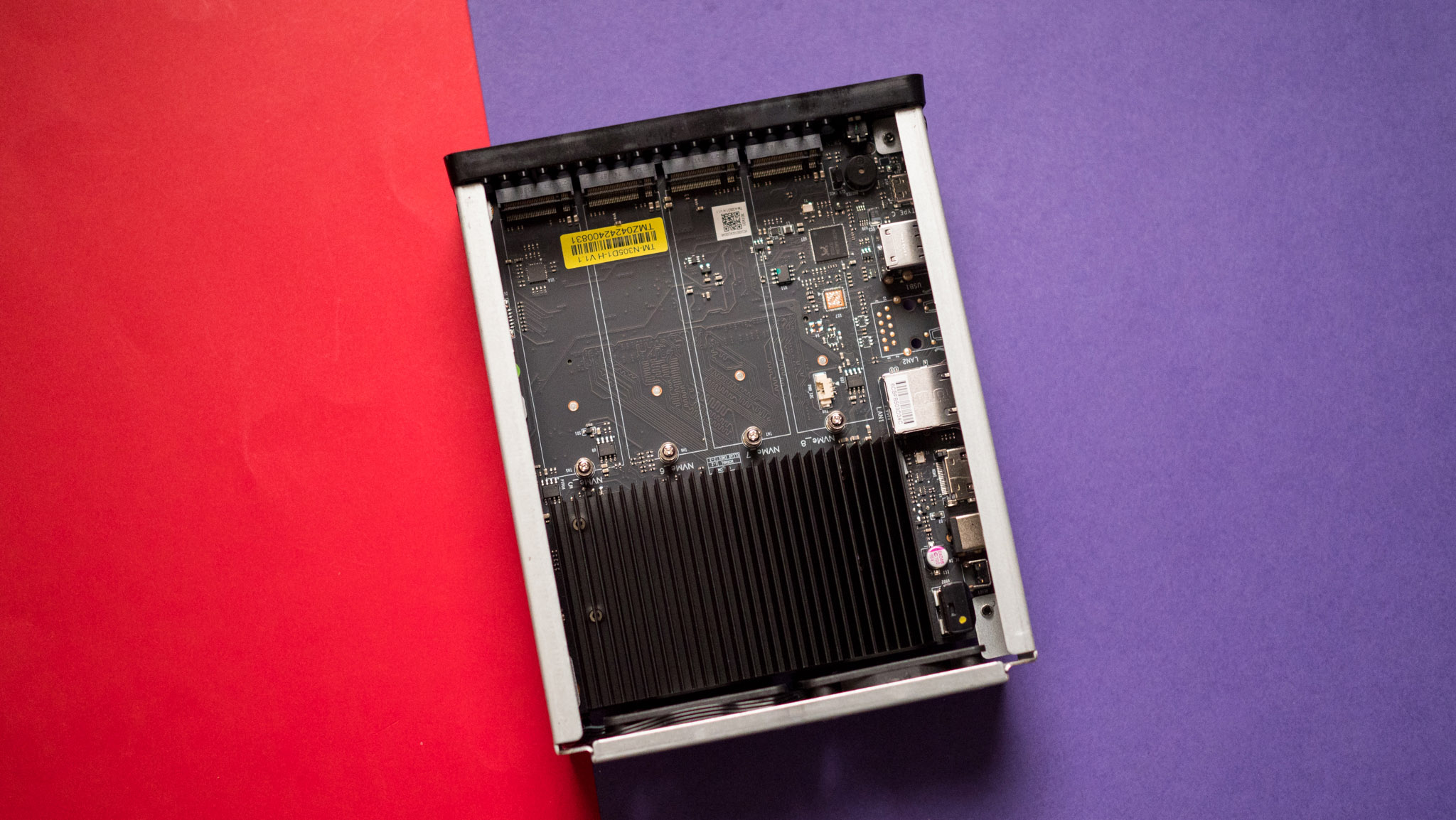
The F8 SSD Plus is powered by the Intel i3-N305 platform, and it is much more powerful than the Celeron N5105 that's present on models like the ASUSTOR AS5402T. The N305 has eight cores and eight threads, goes up to 3.80GHz, and you get hardware transcoding, which is great if you're eyeing the NAS as a powerful Plex NAS server.
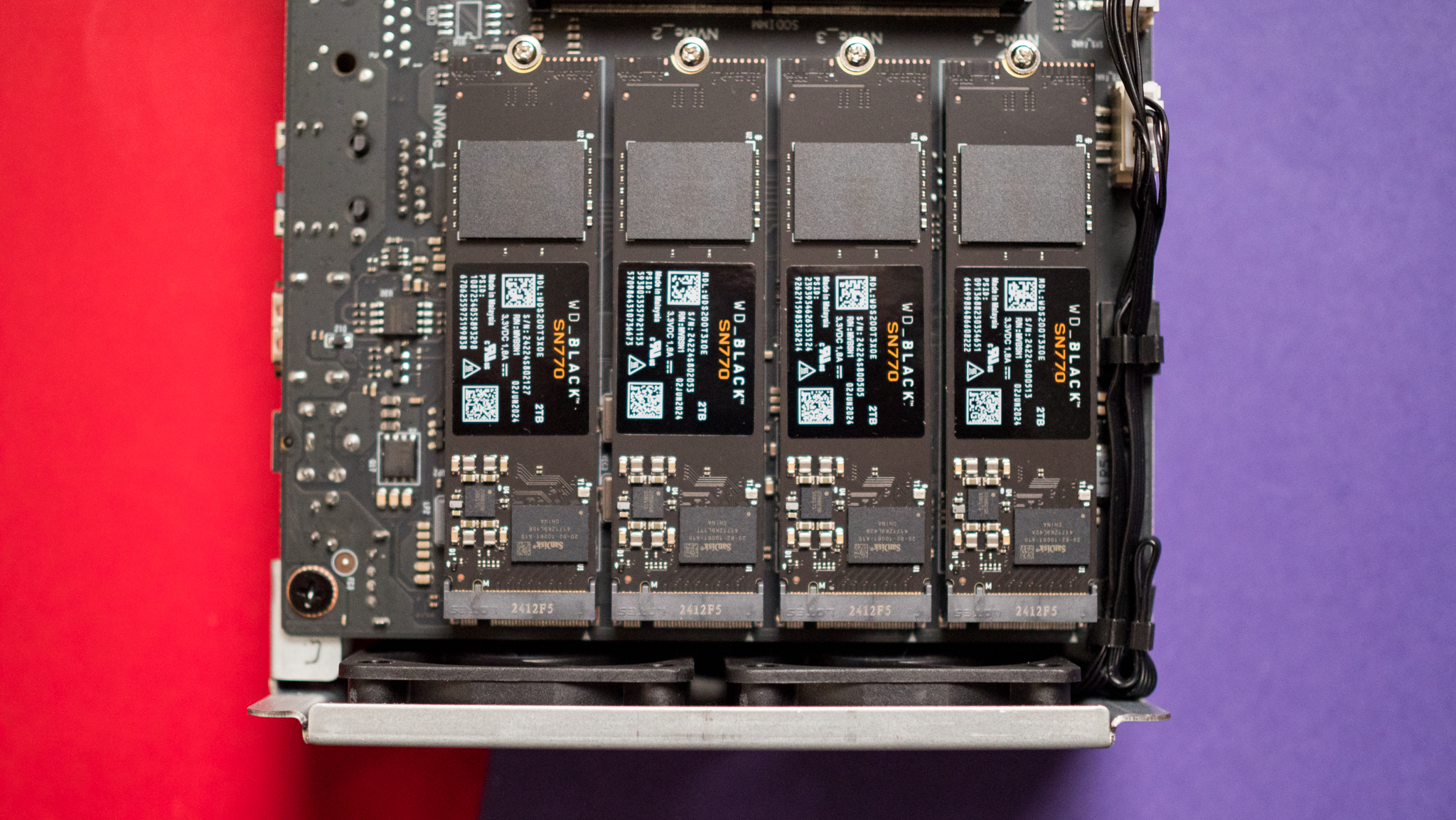
I used four 2TB WD SN770 Gen 4 drives, and frankly, they're overkill in this scenario. As the M.2 slots on the NAS use a Gen 3 interface, you're better off picking up something like the Crucial P3 instead; I use it in my gaming machine, and it is great as a storage drive. The best part is that it is much more affordable than Gen 4 options; the 4TB P3 is available for just $225, making it the ideal choice to use in the NAS.
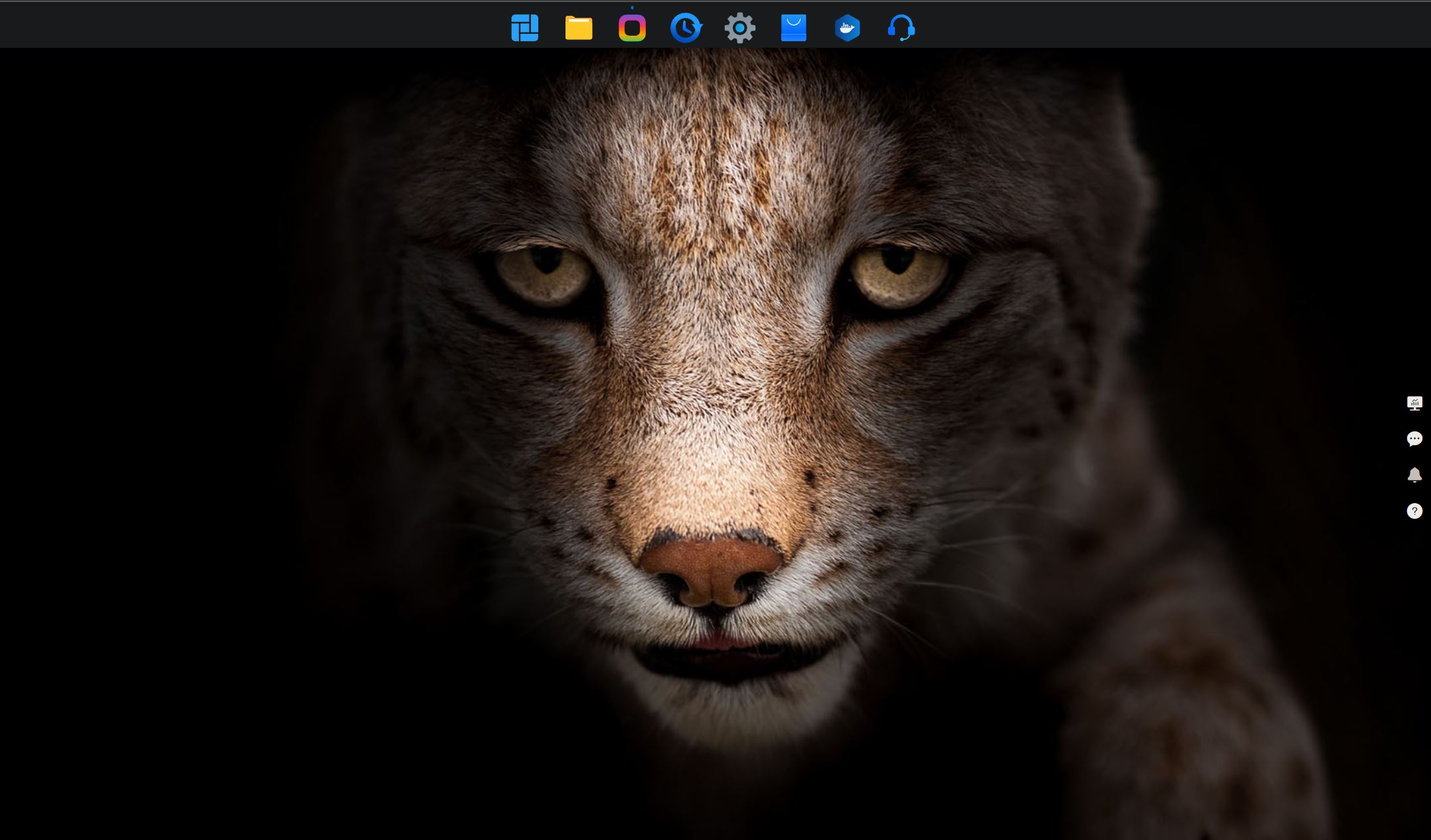
TerraMaster overhauled its software last year, and TOS 6 has a cleaner interface. There's now a dock that sits up top, and you can access all installed packages, control system settings, and set up container management. There's a native Plex client, and while TOS 6 doesn't have anywhere close to the same number of utilities as DSM 7.1, you can spin up containers via Docker.
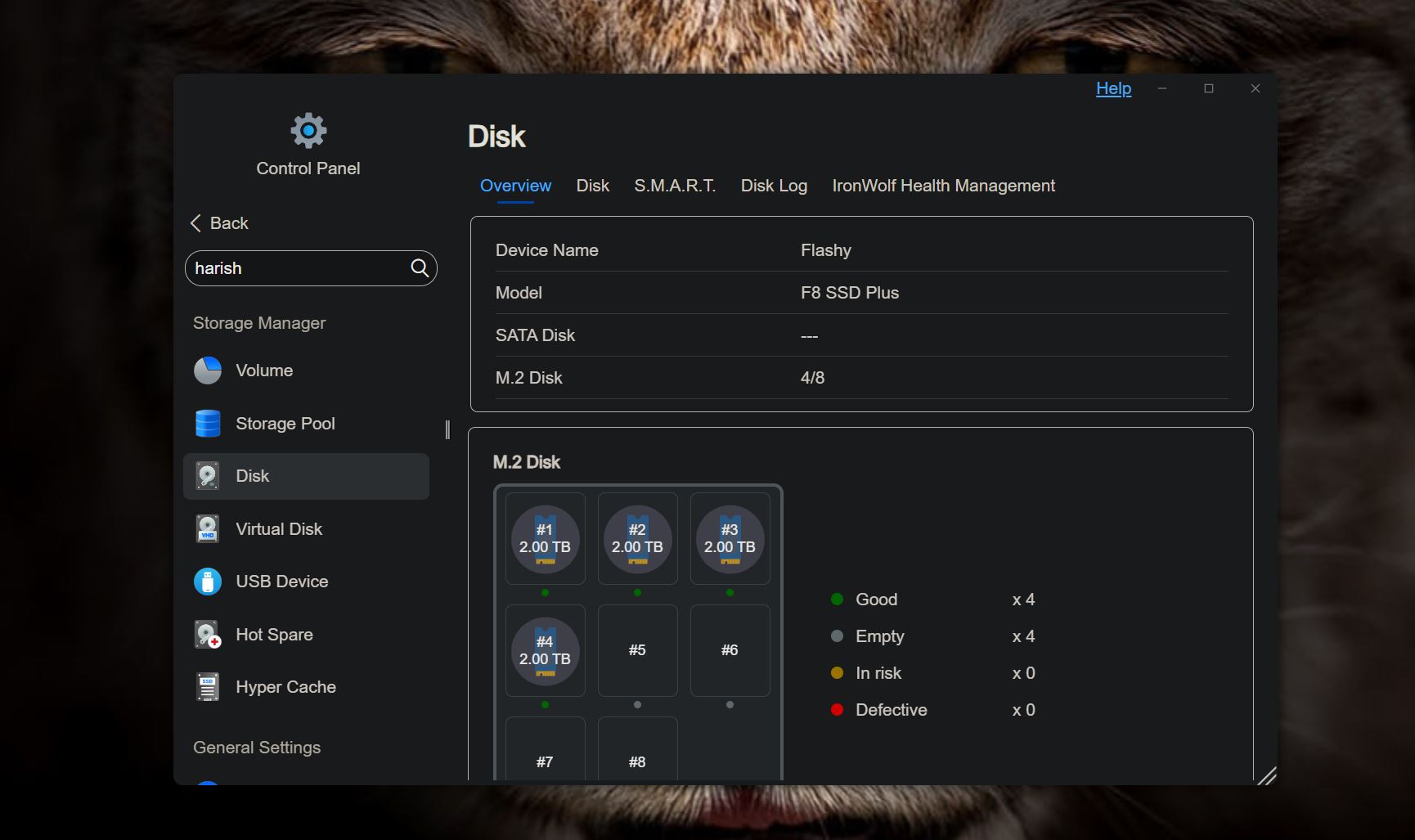
The software still has its share of quirks; when setting up the NAS, you're asked to verify your email so that you can reset the user account should you need to. This needs a one-time code that's sent to the email, but that never showed up, and I wasn't able to set it up after initial configuration.
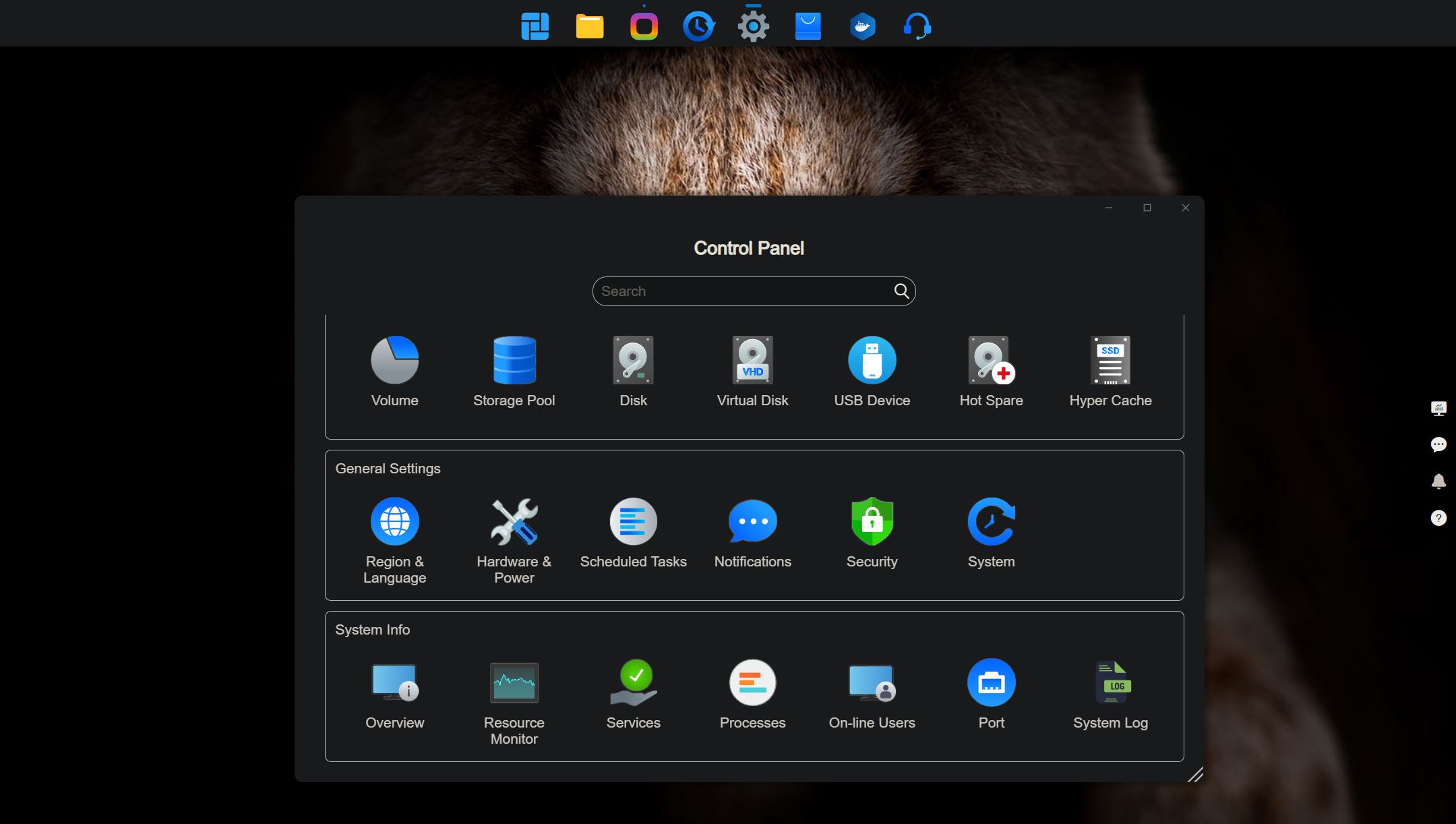
That said, the interface is fluid and there aren't any issues with slowdowns. The increased power makes the NAS a decent choice as a VM server, something that isn't the case with most traditional HDD servers in this segment. The best part is that you can install TrueNAS on the NAS if you're used to its feature-set.
The use of M.2 drives exclusively combined with 10GbE connectivity makes this one of the best NAS servers around if you need to move a lot of data regularly. It's much better with productivity-focused tasks that involve a lot of random reads as well.
TerraMaster F8 SSD Plus: The alternatives
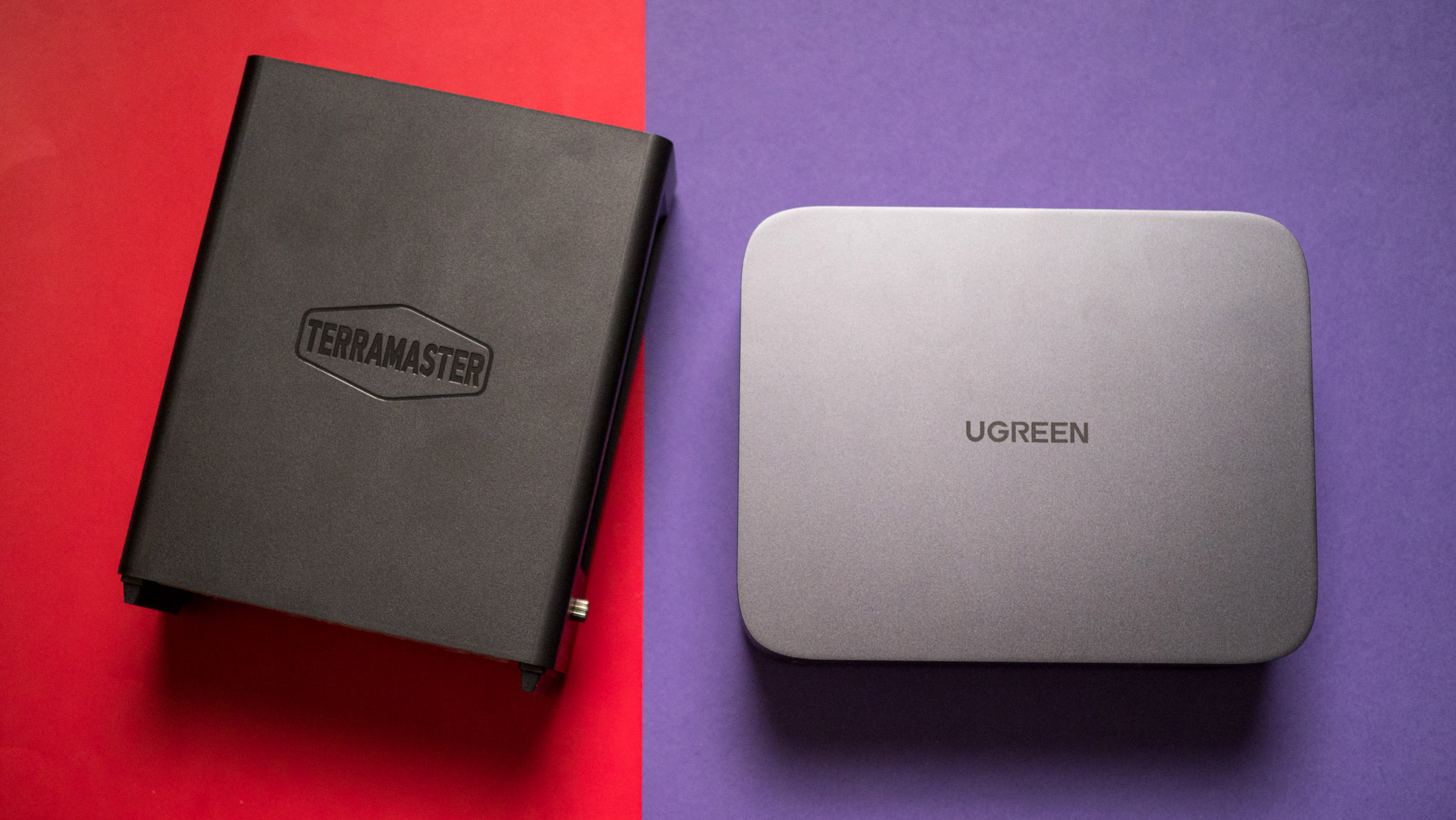
I reviewed UGREEN's DXP480T Plus NAS earlier in the year, and it is one of the best options in this category. The NAS has even better hardware thanks to Intel's Core i5 1235U, and you get dual Thunderbolt 4 ports along with 10GbE connectivity, and a metal chassis that looks elegant. The main issue is that you get just four M.2 slots, 8GB of memory installed out of the box, and the software just doesn't have as many features even now. And coming in at $999, the DXP480T Plus is costlier.
ASUSTOR has the Flashstor 12 Pro (FS6712X), and while it has 12 M.2 slots and 10GbE connectivity, it isn't nearly as powerful as the F8 SSD Plus, and you just get 4GB of RAM out of the box. That said, it is a decent choice at $799 if you want plenty of M.2 slots and don't necessarily need the best hardware.
TerraMaster F8 SSD Plus: Should you buy it?
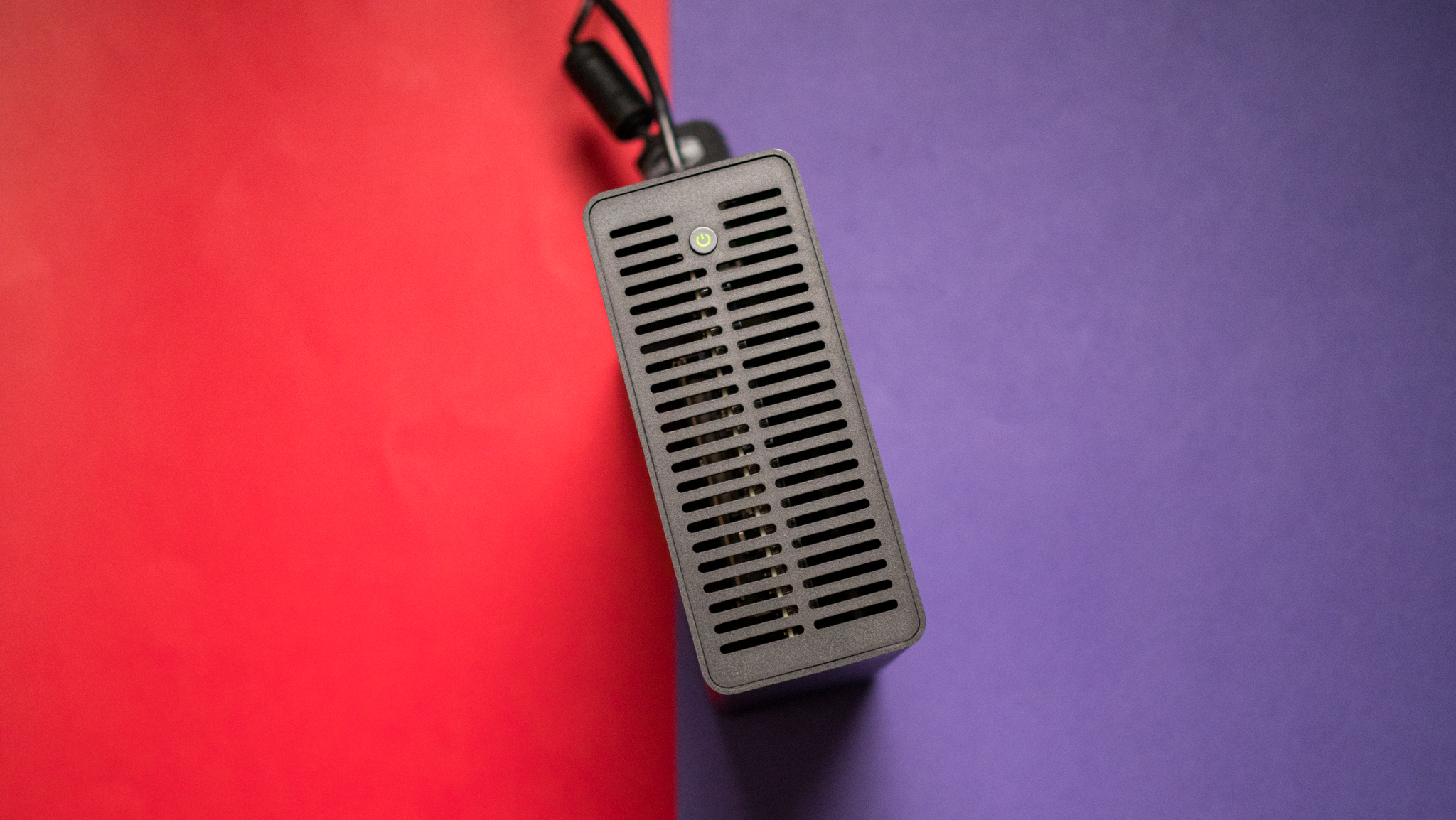
You should buy this if:
- You're ready to switch to all-flash storage
- You need plenty of M.2 slots
- You want powerful hardware and 16GB memory
- You want a high-end Plex NAS that doubles as a VM server
You shouldn't buy this if:
- You want the best software
- You need Thunderbolt 4 connectivity
The F8 SSD Plus is the best showcase yet of an all-flash NAS, and the fact that you get eight M.2 slots in such a small package is a big deal in and of itself. TerraMaster nailed the hardware part, and the N305 combined with 16GB of RAM and 10GbE connectivity ensures you can take full advantage of the increased bandwidth available with M.2 storage.
The NAS is aimed at enthusiasts and content creators, and what I like the most is that it doesn't cost as much as its rivals while still providing one of the best hardware packages in this segment. If you're ready to make the switch to an all-flash NAS and want a server with plenty of M.2 slots and powerful hardware, the F8 SSD Plus gets my recommendation.
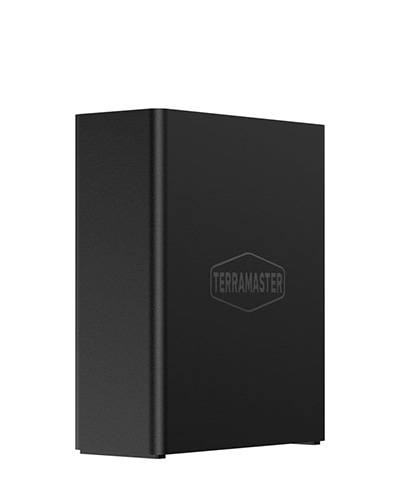
The F8 SSD Plus has all the power you need, and you have the ability to slot eight M.2 slots. If you're ready to switch to flash storage in your NAS server, this is the go-to recommendation.

Harish Jonnalagadda is Android Central's Senior Editor overseeing mobile coverage. In his current role, he leads the site's coverage of Chinese phone brands, networking products, and AV gear. He has been testing phones for over a decade, and has extensive experience in mobile hardware and the global semiconductor industry. Contact him on Twitter at @chunkynerd.
You must confirm your public display name before commenting
Please logout and then login again, you will then be prompted to enter your display name.


